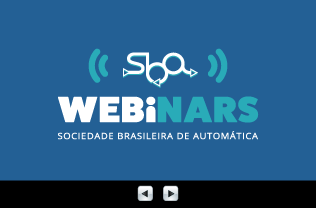3rd CALL - DEADLINE EXTENDED - ICAR 2019 Workshop on Robotics for Occupational Safety & Health in Industrial Environments
[Call For Participation]
What: Full-day Workshop at ICAR 2019: "Robotics for Occupational Safety and Health in Industrial Environments"
Where: Belo Horizonte, Brazil on DECEMBER 5/6, 2019
Webpage: https://advr.iit.it/ws_icar2019_roshie
Extended Abstract DEADLINE EXTENDED: OCTOBER 20, 2019
[Confirmed Speakers] (Alphabetical order)
* Jan Babic (Josef Stefan Institute, Slovenia)
* Francesco Draicchio (INAIL, Italy)
* Paolo Fiorini (University of Verona, Italy)
* Michele Focchi (IIT, Italy)
* Navvab Kashiri (IIT, Italy)
* Carlo De Petris (INAIL, Italy)
* Kenjiro Tadakuma (Tohoku University, Japan)
(Updates to come. Please check website.)
[Organizers]
Nikhil Deshpande (IIT, Italy)
Jesús Ortiz (IIT, Italy)
Stefano Toxiri (IIT, Italy)
Abdeldjallil Naceri (IIT, Italy)
Daegeun Park (IIT, Italy)
***********************************************
Dear Colleagues,
We are excited to announce the first edition of the workshop “Robotics for Occupational Safety & Health in Industrial Environments” (ROSHIE 2019). The goal of this workshop is to capture and highlight recent trends in the field of robotics for occupational safety and health (OSH). The OSH paradigm recognizes the direct and indirect consequences, both human and economic, of work-related accidents and disorders. Successful OSH practices, especially in labour-intensive and hazardous work environments, address issues ranging from industrial hygiene, engineering safety, ergonomics, exposure to toxicity, radiation, and explosions, among others. As two separate issues, efforts in OSH have to address “health” and “safety” both individually and concurrently.
From the occupational health perspective, the most frequent threat to workers is musculoskeletal disorders (MSDs) due to material handling (> 30% of the worker population in the EU), repetitive movements (63%) and awkward body postures (46%). In the last years, wearable assistive robotic devices have shown their potential benefit in the reduction of the muscular efforts of the operator during manual handling tasks.
From the occupational safety perspective, even routine tasks in certain work environments expose workers to extreme risks, such as disaster response and recovery, nuclear decommissioning, industry (chemical, petro-chemical, and iron & steel), marine and underwater operations, etc. In recent years, humanoids and quadruped robots have seen advanced trials in real-world environments, providing important insights and further learnings in tackling the challenges in autonomous navigation, remote robotic teleoperation in bilateral haptic control, 3D visualization and environment perception, collaborative control, communication bandwidth and latencies, etc.
The contributors of this workshop will have the opportunity to share their experiences and latest results testing robotic technologies for occupational safety and health. The workshop will provide a forum to discuss new strategies that can be adopted towards real-world deployments of robotics systems for OSH.
***********************************************
[Call for Abstracts]
The workshop invites contributions (extended abstracts, max 2 pages) presenting original research related with one or more of the following topics:
Exoskeletons, Exosuits, Wearable Robotics, Soft Wearables, Biomimetic & Dynamic Control, Industrial heavy-lifting tasks;
Remote Robotic Teleoperation, Humanoids & Legged Robots, Remote Sensing and Perception, 3D Visualization, VR, & AR, AI & Deep Learning, Haptic Master Devices, Bilateral Bi-manual Telemanipulation, Disaster Response, Nuclear Decommissioning, Real-world deployments.
[Submission Details] (SUBMISSION DEADLINE EXTENDED - OCTOBER 20, 2019)
- To submit the extended abstract, please visit the workshop webpage and access the template. The template contains further details on submission - format, where-to-send, etc.
- The abstract submission deadline is October 20, 2019
- The acceptance notification shall be on October 25, 2019
- The accepted abstracts will be made available on the website of the workshop during and after ICAR 2019
- The accepted abstracts will also be invited to be presented at the workshop as posters. The poster template shall also be made available on the workshop website
- At least one of the authors of the selected abstracts will be required to attend the workshop to be included in the poster presentation session
- Included in the workshop schedule is a short 3-min poster call-out, allowing the author to advertise their poster before the poster session
[Information requests]
For further information, please contact Nikhil Deshpande (nikhil.deshpande@iit.it)
Thank you,
~ Nikhil Deshpande
--------------------------
Researcher
Advanced Robotics
Istituto Italiano di Tecnologia (IIT),
Via Morego 30, 16163, Genova, Italy
--------------------------
Informações
Encerramento: 06/12/2019 Local: UFMG, Belo Horizonte, Minas Gerais Site: http://advr.iit.it/ws_icar2019_roshie
- 20/10/2019 - Abstract submission deadline

Bruno Vilhena Adorno
Sócio desde 2012
Profissional
- Instituição:
- The University of Manchester
- Endereço Profissional:
- Department of Electrical and Electronic Engineering
School of Engineering
The University of Manchester
Sackville Street
Manchester M13 9PL
United Kingdom - Currículo Resumido:
- Bruno Vilhena Adorno obteve o título de engenheiro mecatrônico em 2005 e de mestre em engenharia elétrica em 2008, ambos pela Universidade de Brasília, e o título de doutor em sistemas automáticos e microeletrônicos em 2011 pela Universidade de Montpellier (França). Atualmente, é Senior Lecturer in Robotics (equivalente a Professor Associado) da Universidade de Manchester. De 2012 a 2020, foi professor do Departamento de Engenharia Elétrica da Universidade Federal de Minas Gerais (UFMG), onde foi co-fundador e co-líder do grupo de pesquisa Mecatrônica, Controle e Robótica (MACRO). Ele é membro sênior do IEEE, foi bolsista de produtividade em pesquisa do CNPq no triênio (2018-2021) e é o atual coordenador do Comitê Técnico de Robótica da Sociedade Brasileira de Automática (2017-2018 e 2019-2020). É autor ou co-autor de 17 artigos em periódicos e 35 em conferências / capítulos de livros. Ele é editor associado do IEEE Robotics and Automation Letters e do Journal of Control, Automation and Electrical Systems, também atua no corpo editorial da RSJ/IEEE International Conference on Intelligent Robots and Systems e do Congresso Brasileiro de Automática desde 2017. Seus interesses atuais de pesquisa incluem aspectos práticos e teóricos relacionados à cinemática, dinâmica e controle de robôs, com aplicações a manipuladores móveis, humanóides, sistemas de manipulação cooperativa, interação humano-robô e robótica de assistência.
- Lattes:
- http://lattes.cnpq.br/3363634987221133
- Endereço:
-
- Email:
- adorno@ieee.org

